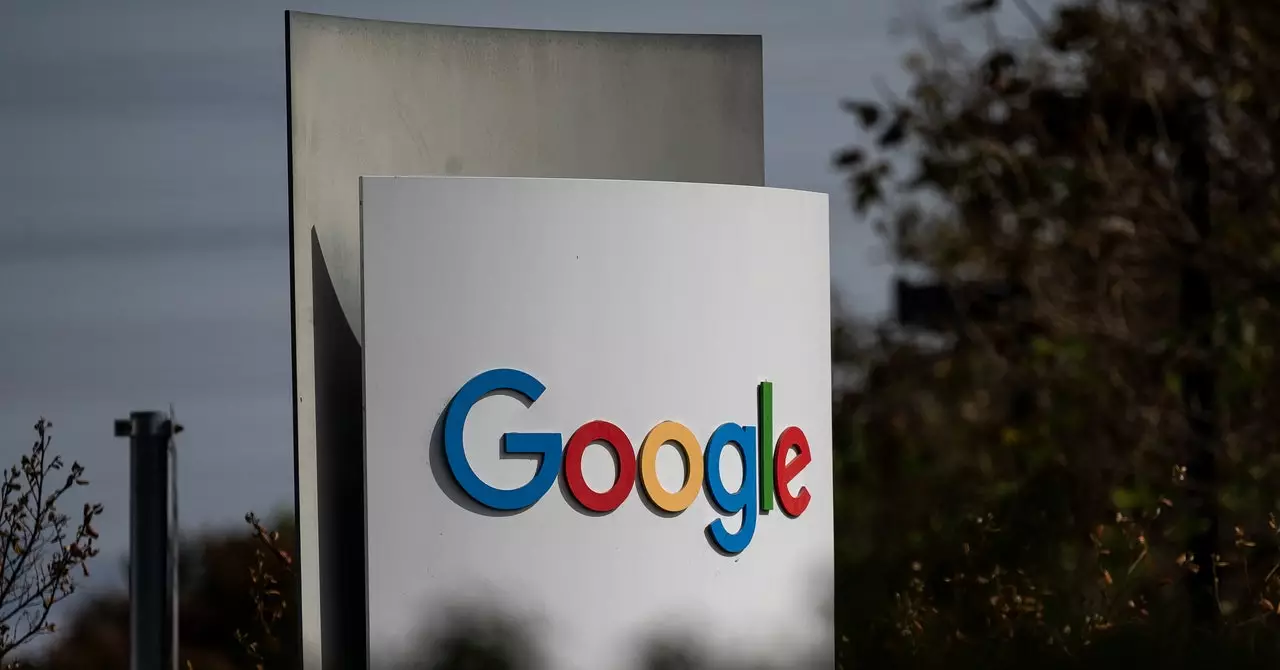In recent years, the tech industry has witnessed a significant shift towards artificial intelligence, dramatically altering how users interact with digital platforms. Google, a long-standing giant in the search engine market, is now facing fierce competition from new players like OpenAI’s ChatGPT and its own Gemini Assistant chatbot. However, this competition arrives amidst ongoing scrutiny from regulators concerning Google’s business practices and anti-competitive behaviors. The U.S. Justice Department’s concerns about Google’s dominance in search and digital advertising present formidable challenges as the company seeks to expand its AI initiatives.
Shifting Partnerships and Operational Constraints
In a recent court filing, Google revealed a series of proposed operational restrictions aimed at navigating these antitrust pressures. These restrictions would prevent the company from mandating its device manufacturers, browser partners, and wireless carriers to exclusively distribute its Gemini Assistant to U.S. users for a span of three years. This shift not only reflects Google’s attempt to appease regulators but also signals a recognition that past practices may be unsustainable in an evolving marketplace. The easing of these contractual obligations could foster a more competitive environment, allowing other search engines and AI tools to gain traction alongside Google’s offerings.
Despite the proposal, Google firmly rejected the notion of divesting parts of its business or increasing transparency with competitors. Such resistance highlights the complexities of navigating regulatory expectations while maintaining a competitive edge—an intricate balance that many tech giants struggle to achieve. This balance is critical as Google transitions from a search-centric model to one increasingly focused on AI and chatbot integrations.
The antitrust battle, compounded by a recent ruling from U.S. District Judge Amit Mehta, underscores the gravity of the situation. Judge Mehta’s findings indicated that Google’s previous arrangements to secure default search provider positions violated federal antitrust laws. By leveraging lucrative ad revenue sharing with partners, Google was able to consolidate its position across multiple platforms, stifling competition and maintaining excessive control over digital advertising prices. As a consequence, there is now heightened anticipation surrounding the upcoming hearings, which are set to begin in April, with a decision expected by next August.
Google’s stock has seen a favorable rise amid these challenging circumstances, reflecting a mix of investor optimism and the company’s historical resilience. With shares climbing over 37 percent in 2024, Google’s parent company, Alphabet, appears poised for one of its strongest annual performances since its initial public offering. This optimism may stem from the belief in Google’s ability to innovate and adapt, effectively leveraging its existing resources to navigate the evolving landscape of AI and search technology.
As Google and OpenAI jockey for position in the burgeoning field of AI chatbots, the implications for the future of search are profound. The Justice Department aims to ensure that Google does not merely transfer its search dominance to the AI domain. However, Google’s proposal to retain some default agreements highlights its reluctance to relinquish the competitive advantages gained through established partnerships.
The proposed restrictions do permit Google to negotiate promotional deals for Gemini, showcasing the company’s intention to maintain influence while also adhering to regulatory pressures. This dual strategy exemplifies the broader tension within the tech industry where innovation must coalesce with compliance. As Google looks to promote its AI innovations, it also faces the necessity of allowing competitors the freedom to collaborate with other partners, creating a more level playing field.
Google’s journey as it seeks to promote its Gemini Assistant amidst a backdrop of regulatory scrutiny and fierce competition from entities like OpenAI is emblematic of the broader struggles facing technology giants today. The balance between innovation, regulation, and market share will likely shape the contours of digital interaction for the foreseeable future. As this industry evolves, companies must not only comply with legal expectations but also ensure that they adapt their business practices to embrace genuine competition in the realm of AI and beyond. The coming years will undoubtedly define new standards for what it means to operate in a marketplace that increasingly values both innovation and fairness.


Leave a Reply